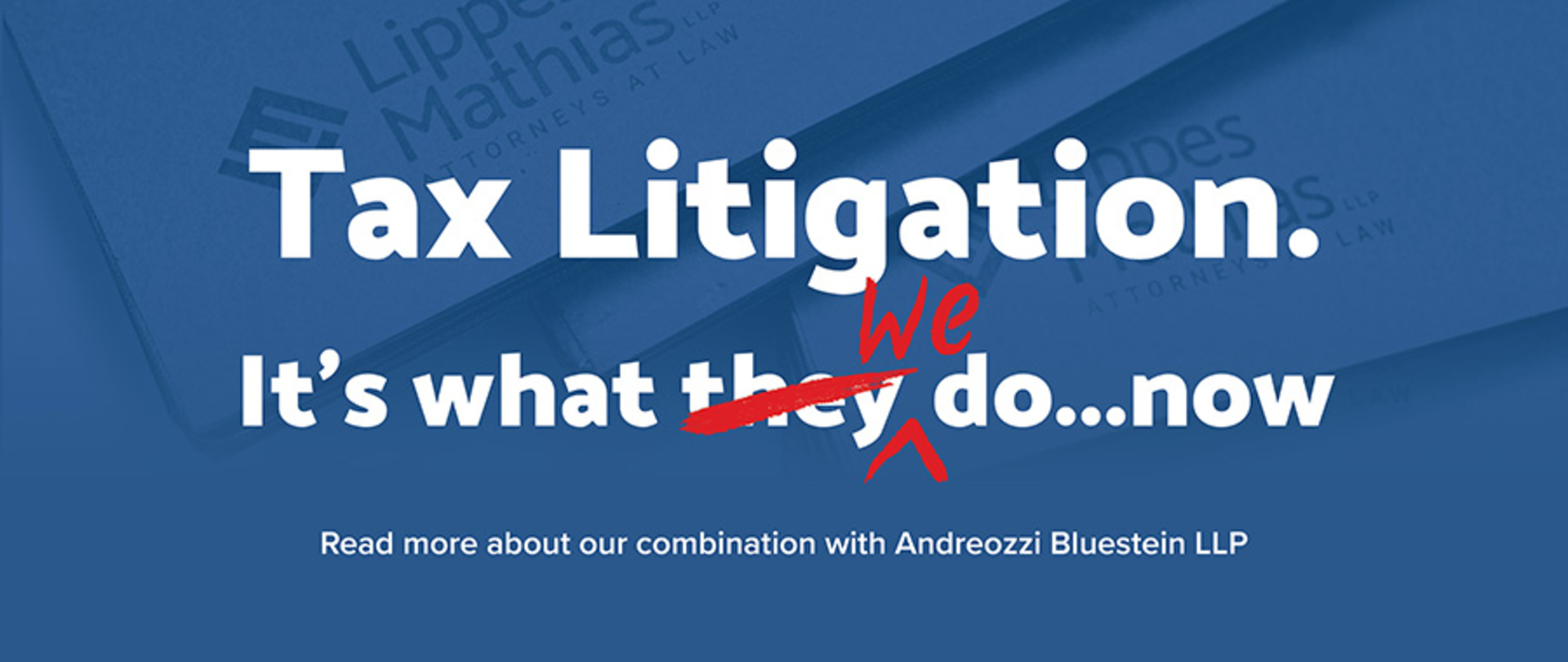
Welcome to Lippes Mathias!
After many years of providing legal services to its clients, the firm of Andreozzi Bluestein LLP has decided that, in the increasingly complex legal environment of today’s world, it would be beneficial to its clients to broaden their areas of expertise to provide them with the best representation possible. As a result, we are proud to announce that, as of June 1, 2023, the attorneys and staff of Andreozzi Bluestein LLP joined Lippes Mathias LLP.
While they will operate under the name Lippes Mathias LLP, they will continue to occupy their current office space located at 9145 Main Street, Clarence, NY 14031.
Please use the links below to visit the bios of the Andreozzi Bluestein attorneys and professionals who have joined Lippes Mathias.
While they will operate under the name Lippes Mathias LLP, they will continue to occupy their current office space located at 9145 Main Street, Clarence, NY 14031.
Please use the links below to visit the bios of the Andreozzi Bluestein attorneys and professionals who have joined Lippes Mathias.
- Justin J. Andreozzi, Partner
- Randall P. Andreozzi, Partner
- Tiffany D. Bell, Office Partner-in-Charge, Clarence
- Gary Bluestein, Of Counsel
- Richard Blumenthal, Director of Federal Tax Controversy & Compliance
- Daniel Brown, Senior Counsel
- Vincent Corrado, Director of International Tax - Controversy
- Ron Faso, Director of Business Development
- Margaret Fichtner, Enrolled Agent
- Edward D. Fickess, Senior Counsel
- Peter Gavagan, Senior Counsel
- John Marien, Forensic Accountant/ Enrolled Agent
- Paula Orlowski, Forensic Accounting Analyst
- Ethan Reger, Enrolled Agent
Click here to learn more about the combination.


